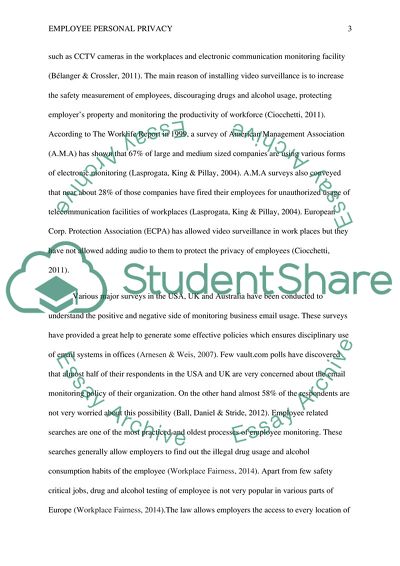Cite this document
(Employee Personal Privacy Research Paper Example | Topics and Well Written Essays - 2250 words, n.d.)
Employee Personal Privacy Research Paper Example | Topics and Well Written Essays - 2250 words. https://studentshare.org/human-resources/1854576-employee-personal-privacy
Employee Personal Privacy Research Paper Example | Topics and Well Written Essays - 2250 words. https://studentshare.org/human-resources/1854576-employee-personal-privacy
(Employee Personal Privacy Research Paper Example | Topics and Well Written Essays - 2250 Words)
Employee Personal Privacy Research Paper Example | Topics and Well Written Essays - 2250 Words. https://studentshare.org/human-resources/1854576-employee-personal-privacy.
Employee Personal Privacy Research Paper Example | Topics and Well Written Essays - 2250 Words. https://studentshare.org/human-resources/1854576-employee-personal-privacy.
“Employee Personal Privacy Research Paper Example | Topics and Well Written Essays - 2250 Words”. https://studentshare.org/human-resources/1854576-employee-personal-privacy.


